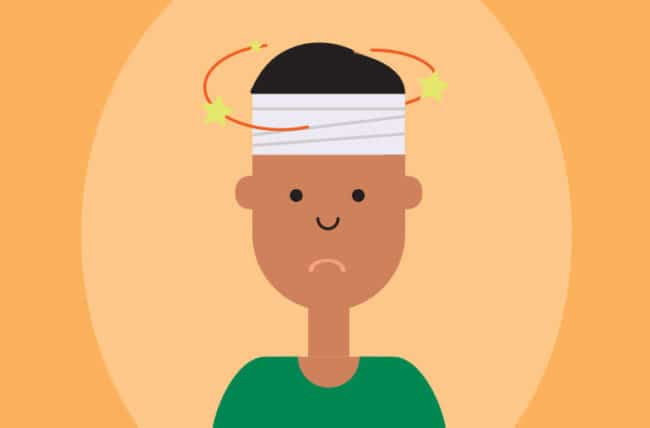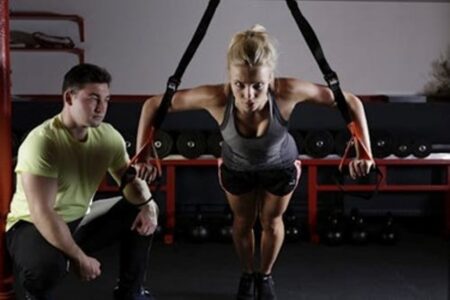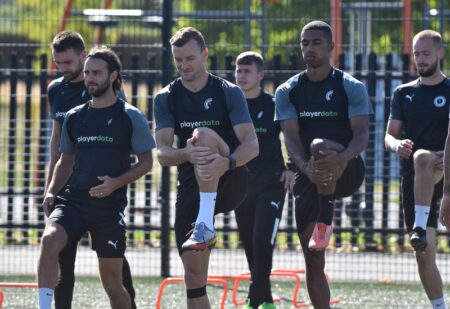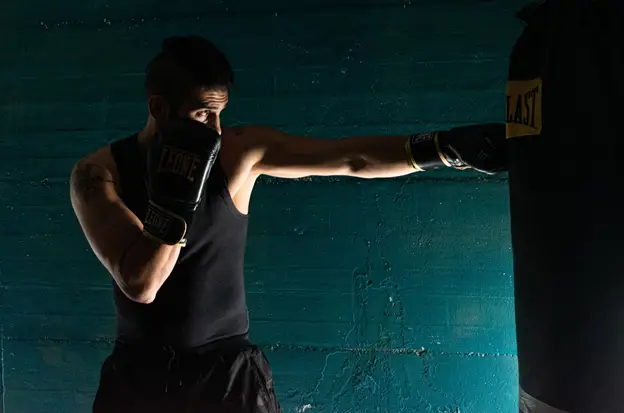Concussions in children in teens are unfortunately very common, particularly among young athletes. Around three million people suffer a traumatic brain injury in the U.S. every year. An estimated 10% of those injuries are concussions.
While any sport or recreational activity can lead to a concussion, it’s most common in contact sports, including football and soccer, as well as horseback riding and cycling.
Sports are the second leading cause of concussions in people between the ages of 15 and 24, behind only car accidents.
Females are more likely to get concussions during youth or college sports, and they’re also more likely to have long-lasting symptoms.
The following is what you should know if your child has a concussion or does an activity that puts them at significant risk for one.
Related: Fitness: Choosing The Right Sport For Your Lifestyle
What Is a Concussion?
A concussion is a traumatic brain injury, also known as a TBI. It occurs anytime there’s a jolt or blow that causes the head and brain to rapidly move back and forth. With a sudden movement, the brain may bounce around in the skull.
Contrary to popular belief, a concussion doesn’t just have to occur with a direct hit to the head. It’s about the force anywhere to the body that moves the head and brain.
While you’ll often hear concussions described as mild because they aren’t life-threatening, the reality is that any brain injury is serious.
Some of the potential signs or symptoms of a concussion can include:
- Headache
- Nausea or vomiting
- Balance problems
- Light or sound sensitivity
- Sluggishness
- Confusion
- Memory or concentration problems
- Appearing stunned or dazed
- Changes in mood or personality
In most children and teens, the signs and symptoms of a concussion show up soon after the initial injury. In some cases, however, you might not see symptoms for hours or days after the injury.
Removing Your Child from Play
If your child gets a concussion while playing a sport or doing an activity, you should remove them and keep them out of play until you speak to a health care provider. Even though you might not need to go to the emergency room, you should always see a doctor following a suspected concussion.
If your child returns to the sport or activity too soon after an injury while their brain is still healing, it puts them at a higher risk of having another concussion.
It can also lead to permanent brain damage.
Typically, if you go see a doctor in a medical office or emergency department, your child will be released to go home. The doctor can give you at-home recovery tips unless the situation is very severe.
There are a variety of tests a health care provider might do, including a CT scan of the brain and neurocognitive tests.
Concussion Danger Signs
In rare cases, there is the potential that a hematoma can form on the brain following a blow to the head or a jolt. That can press your child’s brain against the skull.
You should know the danger signs to look for. These include:
- One pupil is bigger than the other
- Your child seems very drowsy or unable to wake up
- Your child’s headache gets worse and won’t go away
- Numbness or weakness
- Slurred speech
- Decreased coordination
- Convulsions or seizures
- Repeated nausea or vomiting
- Unusual behavior
- Loss of consciousness
Treating Concussion
Every person who has a concussion has their own timeline for healing.
Initially, if your child has a concussion, they should limit activities that require a lot of their attention and focus, and they should return to these activities gradually. Your child may need to take frequent breaks from certain activities.
For the first couple of days after a concussion, your child should rest and relax at home. Limit screen time in the first couple of days because too much TV or time spent on devices can worsen concussion symptoms.
Your child should avoid any activity with a risk of head injury, and they should get plenty of sleep. Rest is important for the brain as it’s healing.
Within a few days to a week after a concussion, with a doctor’s approval, your child might start to return to normal activities, although they should take it slow.
Your health care provider can work with you on a plan to return to school.
Within a week or so, a child might be able to return to most normal activities, but not sports or activities with a high head injury risk.
Finally, within about a month, most children are given the go-ahead from their doctor to resume all activities, but this still might not include sports.
Your doctor should work with your child’s coach on a plan to gradually return to play. Never let your child return to playing sports without the green light from the doctor.
Reducing the Risk of a Future Concussion
Following an initial concussion, one of the most important things you can do is take steps to reduce the risk of another one. The more concussions a child or teen has, the more likely it is that damage becomes permanent.
Chemical changes in the brain while it’s recovering from a concussion make it more sensitive to other injuries.
There’s something called Second Impact Syndrome that can impact young athletes. It means that a child returns to strenuous activity before the brain can fully heal and repair itself. Second Impact Syndrome can cause the brain to stop self-regulating pressure and blood volume flow, leading to severe brain swelling.
When the brain swells to a severe level, it presses against the skull, and that can cause the brain to push holes in it. It can lead to disability or death.
A big part of reducing the risk of a second concussion relies on coming up with a plan with your child’s doctor.
If you ever feel that your child’s coach isn’t taking the risk of injuries seriously, you need to have a conversation with them. All precautions need to be taken, equipment needs to be worn, and coaches need to be focused on injury prevention.





